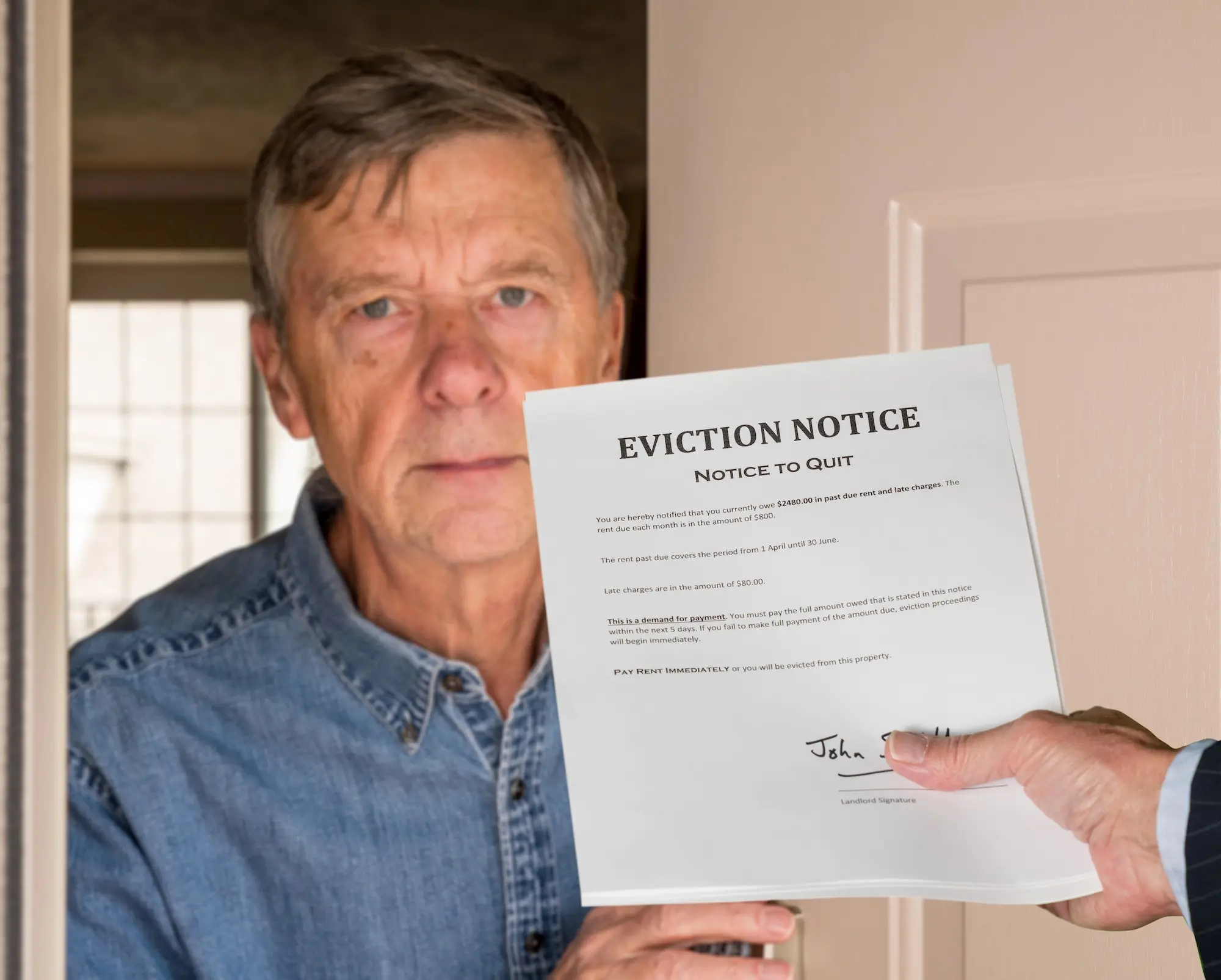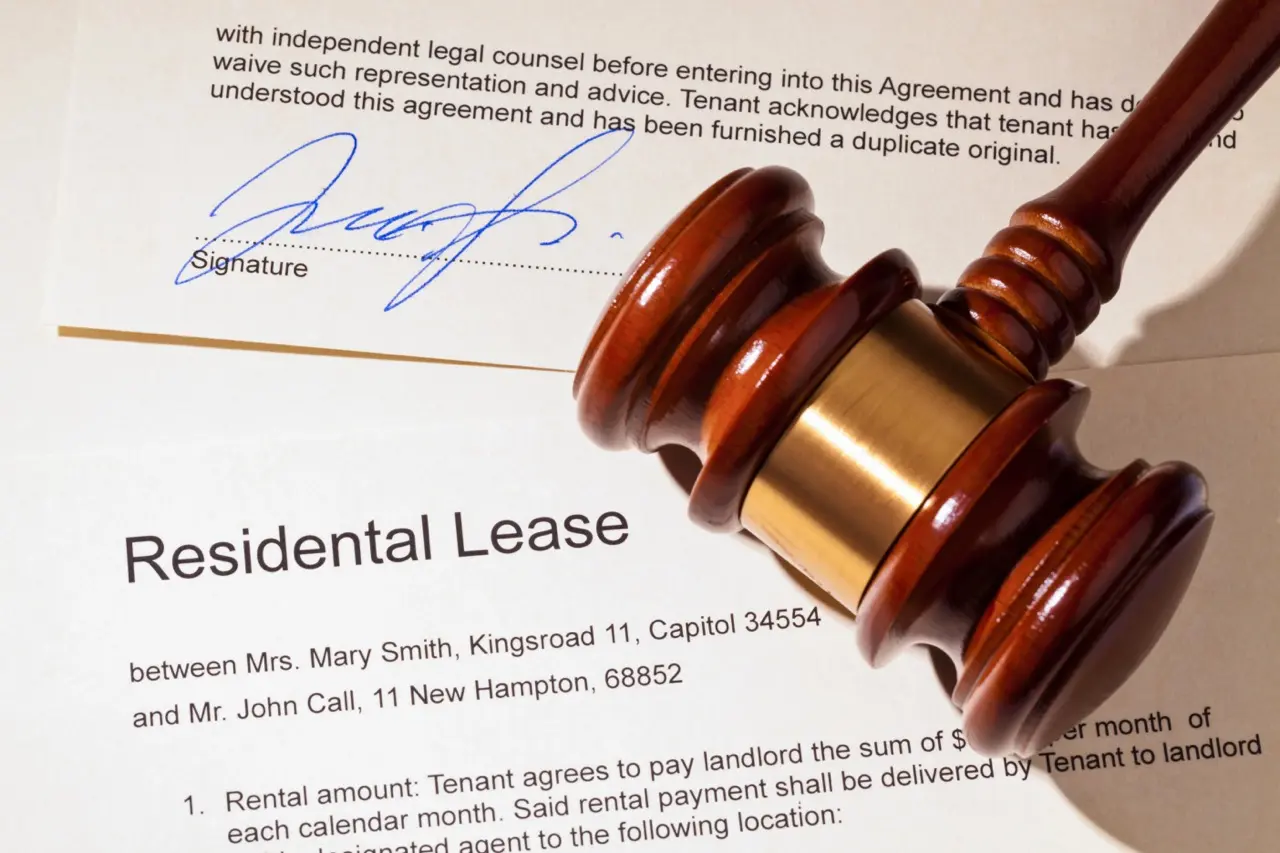One legal mistake can derail your rental business. Courts don't care whether you meant to break the law, from fair housing violations to botched evictions. They care whether you follow it. If you don't, expect fines, lawsuits, and tenant wins that cost you thousands.
This guide outlines the most common legal traps and how to avoid them before they turn into expensive mistakes.
Key Takeaways
- Screen every applicant the same way using objective, written criteria, or risk a fair housing lawsuit.
- Keep clear written records of every tenant interaction because if it's not documented, it didn't happen.
- You could owe the full deposit plus penalties if you miss your state's deadline or fail to itemize deductions.
- Evict through the courts, never lock out or cut utilities, or you'll be the one getting sued.
- Local laws change quickly, and ignoring a new rental rule can result in a termination of your lease or a hefty fine.
1. Follow Fair Housing Rules in Tenant Screening
You must treat all applicants equally. HUD clarifies that you cannot "set different terms, conditions or privileges" or use "different qualification criteria" for people of protected classes. That means no blanket rules like "no criminals, ever" or "no kids." Such policies often disproportionately affect protected groups and can trigger Fair Housing claims.
Always consistently apply objective, written criteria (for example, a specific income ratio or credit score cutoff). Document your reasons if you deny an application. Also, avoid any ads or policies that suggest a preference or limitation (for instance, ads saying "English speakers preferred" are illegal).
What to do:
- Create written screening criteria with specific income and credit requirements
- Apply the same standards to every applicant
- Document all application decisions with objective reasons
Pro tip: Create and use a screening checklist because consistency prevents bias and gives you legal coverage.
2. Don't Retaliate Against Tenant Complaints
Never punish a tenant for asserting their rights. A "retaliatory" action can be illegal, such as raising the rent, threatening eviction, or cutting services immediately after a tenant complains. Some laws even presume an eviction is retaliatory if it follows a complaint within a few months.
If a tenant legitimately complains (about a broken heater or mold), fix the problem promptly and document your work. Do not retaliate by evicting or cutting off the heat. Stay professional and communicate in writing.
Warning signs of retaliation:
- Raising rent immediately after a complaint
- Threatening eviction within days of a repair request
- Filing eviction notices shortly after code violation reports
Pro tip: Encourage tenants to submit repair requests via email. Responding quickly and in writing demonstrates good faith and protects you from potential retaliation claims.
3. Respect Tenant Privacy and Notice Requirements
Unless there's an emergency, always give advance notice before entering a tenant's unit. This is often 24 hours and is required in many states. Valid emergencies (fire, flood, gas leak, etc.) allow immediate entry, but anything else should be scheduled. Entering without notice can expose you to trespass, harassment, or even wrongful eviction lawsuits.
Treat non-urgent visits like appointments: knock, announce yourself, and wait for permission. Use written notices or emails to schedule repairs or showings. This respect for privacy follows the law and avoids trust breakdowns with tenants.
Emergency vs. non-emergency entry:
- Emergency: Fire, flood, gas leak, or immediate safety threat
- Non-emergency: Routine repairs, inspections, showings, maintenance
Pro tip: Keep copies of all entry notices and dates. These records can protect you in court if a tenant disputes your entry.
4. Evict Only Through Legal Channels (No DIY Lockouts)
When it's time to evict, avoid shortcuts. Changing locks, throwing out belongings, or shutting utilities off to force a tenant out is illegal in almost every state. Courts call that "self-help eviction." According to Nolo, tenants can then sue for damages and penalties (often including months of rent).
Instead, follow the legal eviction process:
- Send proper written notice (3-day, 30-day, etc., per state law)
- Wait for the whole notice period
- File an eviction lawsuit if the tenant doesn't comply
- Get a court order before changing locks
Never do these (self-help eviction):
- Change locks while the tenant is still living there
- Shut off utilities, heat, or water
- Physically remove the tenant yourself
Pro tip: Cutting corners on eviction means you'll be cutting a check to your tenant. Always get a court order before evicting a tenant.
5. Maintain Safe, Habitable Conditions
Landlords must provide a livable, safe unit at all times. This implied warranty of habitability means key systems and structures must work: plumbing, heating, electricity, roof, stairs, railings, etc. If conditions become unsafe, tenants can sue or report you to code enforcement.
Always treat repair requests as urgent and document your response. Tenants have a right to safe housing, and ignoring problems (like a broken smoke alarm or plumbing leak) can lead to legal trouble or even rent withholding.
Essential habitability requirements:
- Working plumbing and hot water
- Adequate heating system
- Electrical systems are in good repair
- Structural integrity (roof, floors, stairs)
- Working smoke and carbon monoxide detectors
Pro tip: Conduct regular self-inspections with a checklist to identify and address issues early, and keep records to demonstrate your diligence.
6. Handle Security Deposits by the Book
Security deposits are tightly regulated. Know your state's deadline (often 14-60 days after move-out) and requirements. You must return the deposit on time with an itemized deduction list. Failing to follow the rules can cost you dearly.
After a tenant moves out, inspect the unit within days, then mail a detailed statement of damages and receipts if you deduct any money. Only charge for actual damages beyond normal wear.
Common state deposit deadlines:
- California: 21 days
- Florida: 15 days (no deductions) or 30 days (with deductions)
- Texas: 30 days
- New York: 14 days
Pro tip: Take photos or videos of the unit's condition at move-in and move-out. This visual record helps differentiate normal wear and tear from actual damage, aiding deposit refund decisions.
7. Disclose Lead Paint and Other Hazards
For pre-1978 buildings, federal law requires you to inform renters about lead paint. You must provide tenants with the EPA pamphlet "Protect Your Family from Lead in Your Home" and a written lead warning statement disclosing any known lead hazards. Failing to do so can bring federal penalties.
Address other hazards by installing required smoke/carbon monoxide detectors, quickly fixing mold or pest issues, and following local safety mandates. If a tenant complains of mold or other danger, investigate and remediate as a priority.
Required lead paint disclosures:
- EPA pamphlet "Protect Your Family from Lead in Your Home"
- Written disclosure of known lead hazards
- Signed acknowledgment from the tenant
Pro tip: Store safety reports and disclosure documents with each lease. This paperwork protects you if a tenant claims you concealed a problem.
8. Comply with FCRA for Background Checks
You must follow the Fair Credit Reporting Act (FCRA) when you run tenant background or credit checks. The FTC warns: "When you use consumer reports to make tenant decisions, you must comply with the FCRA." This means getting written permission from applicants, telling the screening agency you're using the report for housing, and following all adverse-action rules.
If you reject an applicant (or require a higher deposit) based on a report, you must send an "adverse action" notice. That notice must include the screening agency's name and contact information and inform the applicant of their rights to review and dispute the report.
FCRA compliance steps:
- Get written permission before running reports
- Certify that you'll use reports only for housing decisions
- Send adverse action notices when denying applications
- Include the screening company's contact information
Pro tip: Use uniform objective cutoff scores (like minimum credit scores or criminal offense types). Clear criteria lead to consistent, defensible decisions over subjective judgments.
9. Use Clear, Enforceable Lease Terms
Your lease should use only legal, transparent terms. Don't include clauses that violate laws, such as requiring tenants to waive their right to sue, cover your legal fees, or pay exorbitant late fees. Courts often strike down illegal clauses or even void whole leases that hide unlawful terms.
Check your state rules: many ban non-refundable fees, cap late charges, or forbid clauses that skirt fair housing or rent laws. Keep the lease straightforward and include required disclosures (lead warning, eviction policy, etc).
Commonly illegal lease clauses:
- Waiving the tenant's right to sue
- Excessive late fees (often capped at 5-10% of rent)
- Non-refundable deposits (many states ban these)
- Requiring tenants to pay the landlord's legal fees
Pro tip: Review your lease annually. Laws change often, and an updated lease helps avoid violations and strengthens your legal position if enforcement is needed.
10. Keep Up with Local Laws and Ordinances
Don't assume federal/state rules are the only ones. Cities and counties often add extra requirements for rental properties. You may need a rental license or annual registration; many municipalities require unit inspections or occupancy certificates. Some areas impose rent-control limits, "just cause" eviction rules or mandatory disclosure forms.
Failing to comply can result in fines or even prevent you from evicting a tenant. For example, many cities now demand that a landlord obtain a certificate of habitability or register rentals.
Common local requirements:
- Rental property licensing
- Annual safety inspections
- Rental unit registration
- "Just cause" eviction ordinances
Pro tip: Stay connected with local housing authorities by subscribing to newsletters and checking city websites for updates. Being proactive helps you avoid costly oversights.
Conclusion
Being a careful landlord isn't just courteous. It's legal self-defense. Each mistake above is a red flag that courts and agencies watch for. Taking a little time now to review your screening criteria, notices, leases, and maintenance routines can save you big headaches (and dollars) later.
If any rule or deadline surprises you, fix it immediately. Better yet, have an attorney or seasoned property manager review your policies. The cost of prevention is always less than the cost of litigation.










